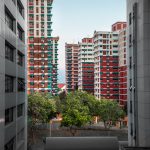What if Bangkok loses its appeal?
It’s no secret that Singaporeans have a borderline obsession with Bangkok. Not so much the insane traffic and polluted air, but the variety of cheap and delicious street food. With the many night markets that have popped up around Bangkok and the local street food that has taken a hipster route, most of us have just chosen to close one eye and not question the cleanliness.
Now, a month after Bangkok was voted the world’s best destination for street food, the Thai capital administration has announced that all food vendors will be swept from the streets. For months now, city officials have hemmed in street hawkers selling insects to Thai boat noodles in a bid to improve safety and cleanliness – which explains their hard-handed ban.
By the end of 2017, sadly, we might not get to see any of these street vendors in action ever again.
Home to some of the biggest and arguably the best markets across Southeast Asia, this ban has prompted outcry and anguish from food vendors and foodies alike.
Banning unauthorized food vendors on the street does make a bit of sense, but the Thais are a step too far with their ban of all types of stalls, including clothes and counterfeit goods.
Why Fix Something That’s Not Broken?
The main reason behind this semi-ridiculous ban is to restore order in the city – since these street vendors are popping up all over the streets, littering the streets and leaving little space for pedestrians. With the vendors worried about their lack of livelihood, their locals are also upset – since the street food are their source of affordable food. Likewise, the Bangkok-lovers in us are afraid that it would take the culture and charm out of Bangkok.
Fret not, this only means that you would need to head to those proper night markets like Chatuchak, Talad Rod Fai or Talad Neon as a substitute for the complete Bangkok experience. Critics say that it is the Thai Junta’s attempt to remodel Bangkok into another Singapore, enforcing regulations that are long abandoned by the locals – just like Singapore circa 1960s.











